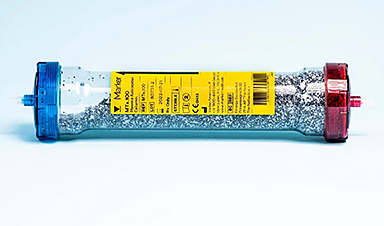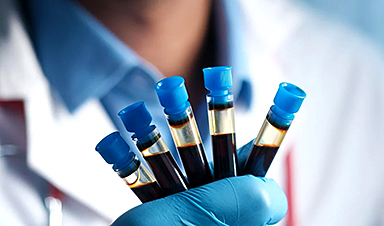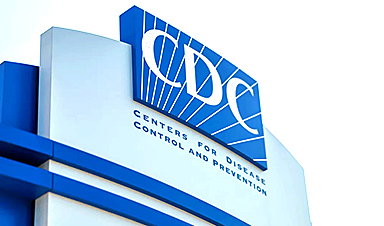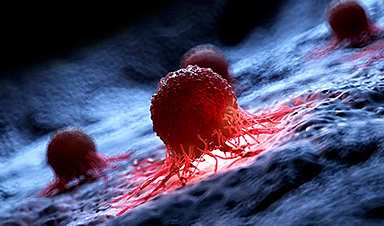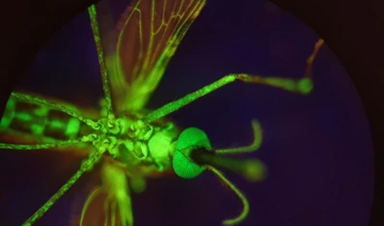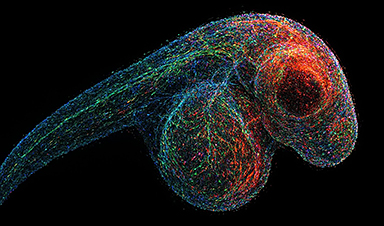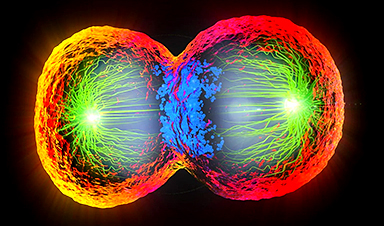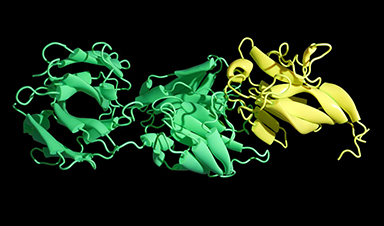- Although the currently available COVID-19 vaccines are highly effective, limited manufacturing capacity and the need for cold-chain storage hinder their global distribution.
- A recent study tested the efficacy of a new adeno-associated virus (AAV) vector-based vaccine in mice and macaques.
- A single dose of the AAV-based vaccine provided protection against SARS-CoV-2 infection in macaques and elicited a potent immune response against the virus for at least 11 months.
- The vaccine was stable at room temperature for 1 month and could potentially be manufactured on a large scale using established processes.
While nearly 42% of the global population have received at least one dose of a COVID-19 vaccine, only 1.9% of individuals in low income countries have received at least one vaccine dose.
This inequitable distribution is, at least partly, due to the limited supply of vaccines and the stockpiling of vaccines by rich nations.
With the successful vaccination of a substantial proportion of the population in wealthier countries, the supply and distribution of vaccines to middle and low income nations are improvingTrusted Source.
However, despite the increase in the supply of the vaccines that provide a high degree of protection against COVID-19, the vaccines do have limitations.
The current COVID-19 vaccines includeTrusted Source mRNA vaccines, such as the Pfizer-BioNTech and Moderna vaccines, and adenovirus vaccines, such as the Oxford-AstraZeneca and Johnson & Johnson vaccines.
All of these, except the Johnson & Johnson vaccine, involve a two-dose regimen, and many of them require storage at cold or ultracold temperatures.
The finite global manufacturing capacity and the lack of the necessary cold storage infrastructure in low income countries are some of the major challenges impeding the global supply and availability of vaccines.
This, along with the emergence of new SARS-CoV-2 variants and the uncertainty about the duration of protection the currently available vaccines provide, suggests the need for new, durable, and easily deployable vaccines.
To address these concerns, a group of researchers is developing a vaccine candidate using an AAV as a vector.
Authors of a recent study, which appears in the journal Cell Host & Microbe, found that a single dose of a vaccine candidate AAVCOVID-1 (AC1) elicited an immune response against SARS-CoV-2 for at least 11 months in macaques. The vaccine candidate was also stable at room temperature for 1 month and produced an immune response against current variants of concern.
Lead author of the study, Dr. Luk Vandenberghe, associate professor at Harvard University and director of the Grousbeck Gene Therapy Center in Boston, MA, told Medical News Today:
“COVID-19 is a continued global health concern for which a number of highly effective vaccines are available to mitigate the pandemic. The data on our experimental vaccine shows that it has the potential to address two of the remaining concerns that prevent effective management of the situation.”
“First, vaccines need to be available for effective deployment worldwide: our data indicates AAVCOVID to be a single-dose vaccine with room-temperature stability to facilitate vaccine campaigns effectively. Second,” Dr. Vandenberghe continued, “our animal data indicates a durability of the immune response that is generally thought to be leading to protection from disease.”
News
AI Outperforms Physicians in Real-World Urgent Care Decisions, Study Finds
The study, conducted at the virtual urgent care clinic Cedars-Sinai Connect in LA, compared recommendations given in about 500 visits of adult patients with relatively common symptoms – respiratory, urinary, eye, vaginal and dental. [...]
Challenging the Big Bang: A Multi-Singularity Origin for the Universe
In a study published in the journal Classical and Quantum Gravity, Dr. Richard Lieu, a physics professor at The University of Alabama in Huntsville (UAH), which is a part of The University of Alabama System, suggests that [...]
New drug restores vision by regenerating retinal nerves
Vision is one of the most crucial human senses, yet over 300 million people worldwide are at risk of vision loss due to various retinal diseases. While recent advancements in retinal disease treatments have [...]
Shingles vaccine cuts dementia risk by 20%, new study shows
A shingles shot may do more than prevent rash — it could help shield the aging brain from dementia, according to a landmark study using real-world data from the UK. A routine vaccine could [...]
AI Predicts Sudden Cardiac Arrest Days Before It Strikes
AI can now predict deadly heart arrhythmias up to two weeks in advance, potentially transforming cardiac care. Artificial intelligence could play a key role in preventing many cases of sudden cardiac death, according to [...]
NanoApps Medical is a Top 20 Feedspot Nanotech Blog
There is an ocean of Nanotechnology news published every day. Feedspot saves us a lot of time and we recommend it. We have been using it since 2018. Feedspot is a freemium online RSS [...]
This Startup Says It Can Clean Your Blood of Microplastics
This is a non-exhaustive list of places microplastics have been found: Mount Everest, the Mariana Trench, Antarctic snow, clouds, plankton, turtles, whales, cattle, birds, tap water, beer, salt, human placentas, semen, breast milk, feces, testicles, [...]
New Blood Test Detects Alzheimer’s and Tracks Its Progression With 92% Accuracy
The new test could help identify which patients are most likely to benefit from new Alzheimer’s drugs. A newly developed blood test for Alzheimer’s disease not only helps confirm the presence of the condition but also [...]
The CDC buried a measles forecast that stressed the need for vaccinations
This story was originally published on ProPublica, a nonprofit newsroom that investigates abuses of power. Sign up to receive our biggest stories as soon as they’re published. ProPublica — Leaders at the Centers for Disease Control and Prevention [...]
Light-Driven Plasmonic Microrobots for Nanoparticle Manipulation
A recent study published in Nature Communications presents a new microrobotic platform designed to improve the precision and versatility of nanoparticle manipulation using light. Led by Jin Qin and colleagues, the research addresses limitations in traditional [...]
Cancer’s “Master Switch” Blocked for Good in Landmark Study
Researchers discovered peptides that permanently block a key cancer protein once thought untreatable, using a new screening method to test their effectiveness inside cells. For the first time, scientists have identified promising drug candidates [...]
AI self-cloning claims: A new frontier or a looming threat?
Chinese scientists claim that some AI models can replicate themselves and protect against shutdown. Has artificial intelligence crossed the so-called red line? Chinese researchers have published two reports on arXiv claiming that some artificial [...]
New Drug Turns Human Blood Into Mosquito-Killing Weapon
Nitisinone, a drug for rare diseases, kills mosquitoes when present in human blood and may become a new tool to fight malaria, offering longer-lasting, environmentally safer effects than ivermectin. Controlling mosquito populations is a [...]
DNA Microscopy Creates 3D Maps of Life From the Inside Out
What if you could take a picture of every gene inside a living organism—not with light, but with DNA itself? Scientists at the University of Chicago have pioneered a revolutionary imaging technique called volumetric DNA microscopy. It builds [...]
Scientists Just Captured the Stunning Process That Shapes Chromosomes
Scientists at EMBL have captured how human chromosomes fold into their signature rod shape during cell division, using a groundbreaking method called LoopTrace. By observing overlapping DNA loops forming in high resolution, they revealed that large [...]
Bird Flu Virus Is Mutating Fast – Scientists Say Our Vaccines May Not Be Enough
H5N1 influenza is evolving rapidly, weakening the effectiveness of existing antibodies and increasing its potential threat to humans. Scientists at UNC Charlotte and MIT used high-performance computational modeling to analyze thousands of viral protein-antibody interactions, revealing [...]







